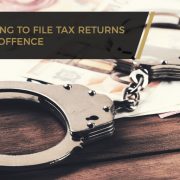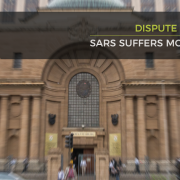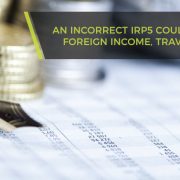Is Your Organisation Paying Women What They Are Worth?
/in 2018, Latest News, News & Articles/by Tax Consulting South AfricaWomen tend to have higher levels of emotional intelligence and empathy compared to their male counterparts, and often promote delivery of soft benefits that may be overlooked in a purely commercial approach to business. Although these are essential to sustainability and human development, especially in Africa.
Beware: failing to file tax returns is a criminal offence
/in 2018, Latest News, News & Articles/by Tax Consulting South AfricaFailing to submit a tax return can result in a criminal record for non-compliant taxpayers. Last month the South African Revenue Service (SARS) published the names of 10 offenders who failed to submit their returns and who now have criminal records. SARS has always been able to do this in terms of the law, but […]
South Africans are emigrating abroad in record high numbers
/in 2018, Latest News, News & Articles/by Tax Consulting South AfricaAccording to experts operating within the field of emigration, South Africans are expected to break emigration records in 2018. Speaking to 702 Talk Radio, the manager at Financial Emigration, Jonty Leon, discussed the sharp spike in the number of South Africans looking to relocate abroad.
Treasury proposes tax change on collective investments
/in 2018, Latest News, News & Articles/by Tax Consulting South AfricaDispute Frustrations – SARS suffers Motion sickness
/in 2018, Latest News, News & Articles/by Tax Consulting South AfricaAn incorrect IRP5 could jeopardise foreign income, travel tax claims
/in 2018, Latest News, News & Articles/by Tax Consulting South AfricaMost individual taxpayers tend to only check their tax certificates (IRP5s) when something goes wrong after submitting their annual tax returns. In most instances, taxpayers will not be allowed deductions or exemptions if there are errors. According to tax commentators, the most common errors are due to incorrect use of source codes.
SARS Creates Tax Loopholes
/in 2018, Latest News, News & Articles/by Tax Consulting South AfricaWhen is a SARS Tax Court case win actually a loss for the fiscus? After the recent SARS court case, dealing with the taxable income of foreigners working in South Africa, it is hard to argue that no-one is working harder than SARS to create tax loopholes for expatriate employees. If anyone in SARS disagrees, […]
Another Reason to Submit your Tax Return
/in 2018, Latest News, News & Articles/by Tax Consulting South AfricaThe South African Revenue Service (SARS) has created some nervousness in the South African tax base by embarking on an initiative to criminally prosecute taxpayers who fail to submit their tax returns. Whilst the threat of a criminal record and a fine ought to serve as sufficient incentive to submit one’s return, it is perhaps […]
6 ways you can save with tax deductions
/in 2018, Latest News, News & Articles/by Tax Consulting South AfricaTax filing season is officially open. And although Acting Commissioner of the South African Revenue Service (SARS) Mark Kingon has noted you don’t have to file a tax return if you earn less than R350 000 per year from a single source of income – and have no allowances – you may still choose to […]









